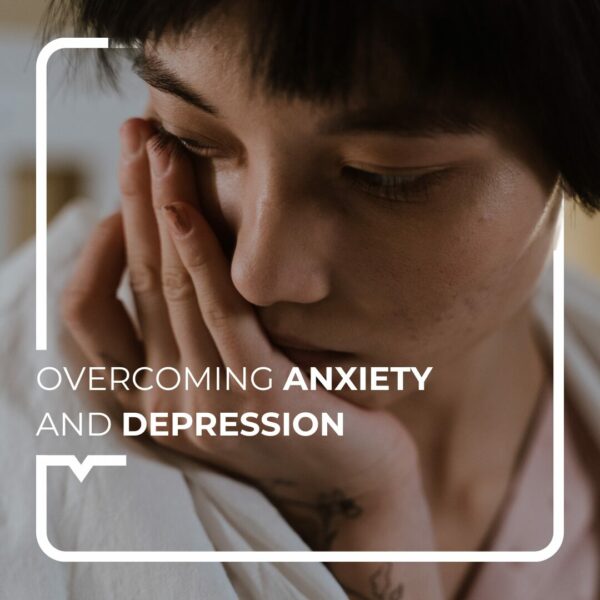Monday. 8am.
Little Lisa wakes up in tears:
“Muuuuummm! My ear hurts! I think I’ve got an ear infection!
*crying*, *whining*, *groaning*.
Sophie, her mum, is panicking; her daughter is really suffering.
What can she do?
Ola,
Dr Joy here!
What if little Lisa had an ear infection?
It’s a common condition that affects people of all ages. Otitis can be painful and disruptive to our daily lives, and even more so when it affects children.
I’ve put together some essential information to help you better understand and cope with ear infections.
Vamos!
I. What is otitis?
Otitis is an inflammation of the ear that can affect different parts of the ear, including the outer, middle and inner ear. This condition can be caused by a variety of factors. It can cause painful symptoms and affect hearing.
There are different types of otitis:
- Otitis externa: Also known as “swimmer’s ear”, this affects the external auditory canal and is often caused by exposure to water or skin irritation.
- Otitis media: Inflammation of the middle ear, usually due to a bacterial or viral infection.
- Internal otitis: Also known as labyrinthitis, this is characterised by inflammation of the inner ear and can cause problems with balance and dizziness.
II. Otitis: How to recognise it
Symptoms of otitis can vary depending on the type and severity of inflammation, but may include:
- Ear pain, which can be intense in young children
- A feeling of pressure or fullness in the ear
- Temporary loss of hearing
- Drainage of fluid or pus from the ear
- Fever, in the case of an infection
Ear pain in children:
Otitis is a common condition in young children, and it’s important for parents to know how to recognise it so they can take appropriate action. Here are some guidelines for spotting an ear infection in children:
- Changes in behaviour: Children with otitis may show behavioural changes such as irritability, difficulty sleeping, restlessness or lethargy. They may also cry more than usual or touch their ear frequently.
- Ear pain: Pain is one of the most common symptoms of otitis in children. They may hold or rub the affected ear, or complain of pain or discomfort there. Infants may find it difficult to suck or suckle because of the pain.
- Fever: An ear infection may be accompanied by a mild to moderate fever in children. If your child develops a fever of over 38°C, it is advisable to consult a healthcare professional.
- Hearing problems: Children with otitis may experience temporary hearing difficulties. They may seem less responsive to sounds or have difficulty understanding verbal instructions.
It is essential to consult a doctor if you suspect your child has an ear infection. A healthcare professional will be able to diagnose it and recommend the appropriate treatment, which may include antibiotics in some cases.
Ear pain in adults:
Otitis in adults is less common than in children, but it can still occur. The symptoms are fairly similar, although adults may feel a sensation of fullness or pressure in the affected ear. This can give the impression of a blocked ear.
In some cases, an ear infection can cause fluid or pus to drain from the ear. This symptom is more common in otitis externa.
III. What causes otitis?
- Otitis can have a number of different causes, including
- Otitis can have a number of different causes, including
- Bacterial or viral infections: Infections of the upper respiratory tract can spread to the ear and cause otitis.
- Obstruction: A physical obstruction, such as earwax or fluid build-up, can lead to otitis.
- Allergic reactions: Allergic reactions to substances such as pollen or dust mites can cause inflammation of the ear.
- Exposure to water: Water entering the ear can encourage bacterial growth and cause otitis externa.
- Pressure on the ear: Sudden changes in pressure, such as those that occur when climbing to altitude or diving, can lead to barotraumatic otitis.
IV. Preventing otitis: Tips for maintaining good hearing health
There are preventive measures you can take to reduce the risk of developing otitis.
- Maintain proper ear hygiene
Gently clean your ears using safe and gentle methods. To do this, run warm water or saline solution down your ear canal. You can use an ear irrigation kit, or do it in the shower. The water should never be hot, only lukewarm.
Then, gently dab the entrance to the ear canal to remove the liquid with a clean cloth.
Avoid inserting objects such as cotton buds or sticks into the ear canal, as this can push the earwax deeper and cause injury.
- Protect your ears from loud noises
Exposure to constant loud noises can damage your hearing and increase the risk of ear infections. Use hearing protection, such as earplugs or earmuffs, when you are exposed to noisy environments, such as concerts, construction sites or sporting events.
other means of prevention
- Avoid getting water in your ears
Water entering the ears can create an environment conducive to bacterial growth and cause otitis externa. When swimming, take precautions by using waterproof earplugs or wearing a swimming cap to protect your ears. Remember to dry your ears when you get out of the water. - Be aware of pressure changes
Sudden changes in pressure, such as when climbing to altitude or descending in an aeroplane, can cause barotraumatic otitis. Swallowing, yawning or chewing gum can help to equalise the pressure in your ears. If you have congestion due to a cold or allergies, consider using decongestant nasal sprays to relieve the pressure in your ears. - Keep your immune system strong
A healthy immune system can help you fight infection and prevent ear infections. Adopt a healthy lifestyle by eating a balanced diet, exercising regularly, getting enough sleep and reducing stress.
V. Treatments for otitis: medical options and natural remedies
When an ear infection is diagnosed, there are a number of treatment options available, ranging from medical approaches to natural remedies. Here is an overview of commonly used treatments for otitis:
Medical solutions:
After your medical consultation, your doctor may prescribe a treatment depending on the type of ear infection. This may involve:
- Antibiotics, if the otitis is caused by a bacterial infection. It is important to follow the doctor’s instructions regarding dosage and duration of treatment.
- Analgesics to relieve the pain associated with otitis, such as paracetamol.
- Ear drops containing antibacterial or antifungal agents can be used to treat otitis externa.
- Drainage in cases of moderate, recurrent or severe otitis. This involves inserting a small tube into the ear to allow liquids to drain out and restore balanced pressure.
2. Natural remedies and advice:
Here are a few tips you can follow before your doctor’s appointment. Be careful though, they can help relieve the symptoms of otitis, but they should not be used as a substitute for appropriate medical treatment, especially in cases of otitis media. Always consult a healthcare professional for an accurate diagnosis and advice on the most appropriate treatment.
Applying a warm compress or flannel to the affected ear can help relieve pain and reduce inflammation.
Natural ear drops, such as tea tree oil or garlic oil, can be used to help relieve the symptoms of otitis externa. Ask our naturopath or your pharmacist for advice before using essential oils.
If you have an otitis externa, avoid swimming or immersing yourself in water until the infection has healed.
Avoid smoking or exposing your ears to irritating chemicals such as harsh hair products or nasal sprays.
Whether you are a parent or an adult suffering from otitis, it is essential to remain vigilant for the tell-tale signs and to consult a health professional if necessary. By taking preventative measures such as maintaining good ear hygiene and avoiding risk factors, we can reduce the chances of developing this painful inflammation.
consult if necessary
Remember that each person is unique, and it is important to consult a doctor for an accurate diagnosis and recommendations tailored to your situation. Early treatment of otitis can not only relieve symptoms, but also prevent possible complications.
Ate ja,
Dr Joy
This information is not a substitute for medical advice.
You must seek the advice of your doctor or another qualified health professional with any questions you may have regarding your health condition.
Sources :
Ameli — Prévenir l’otite moyenne aiguë de l’enfant
Vidal —Les causes et la prévention des otites



